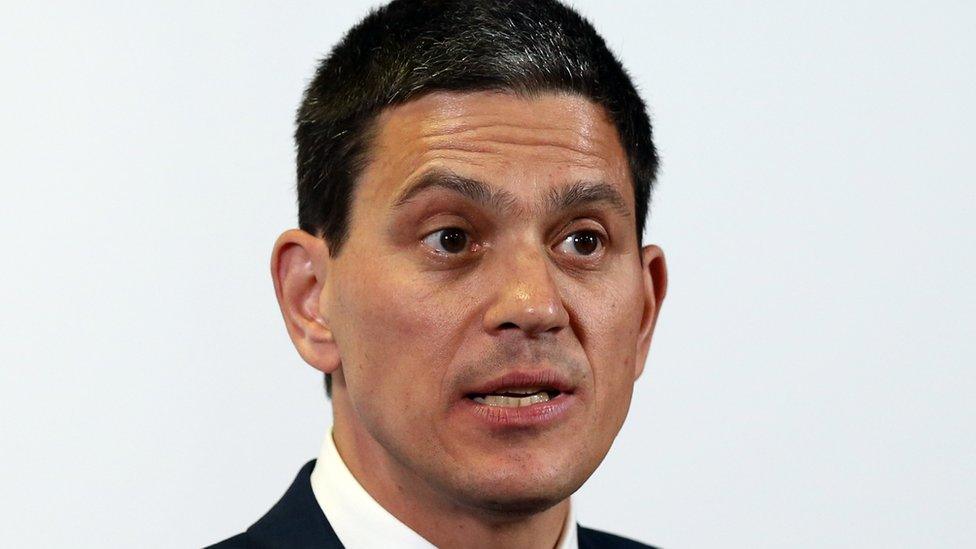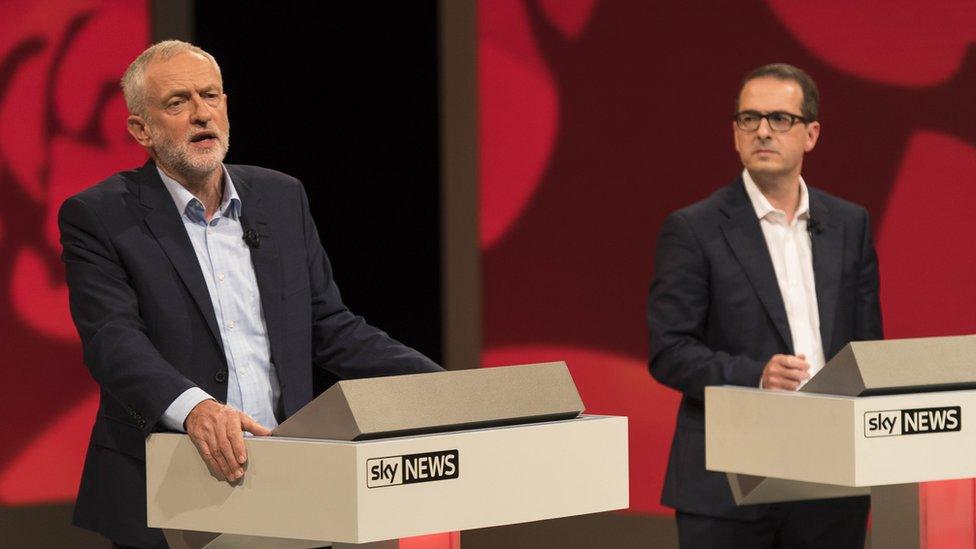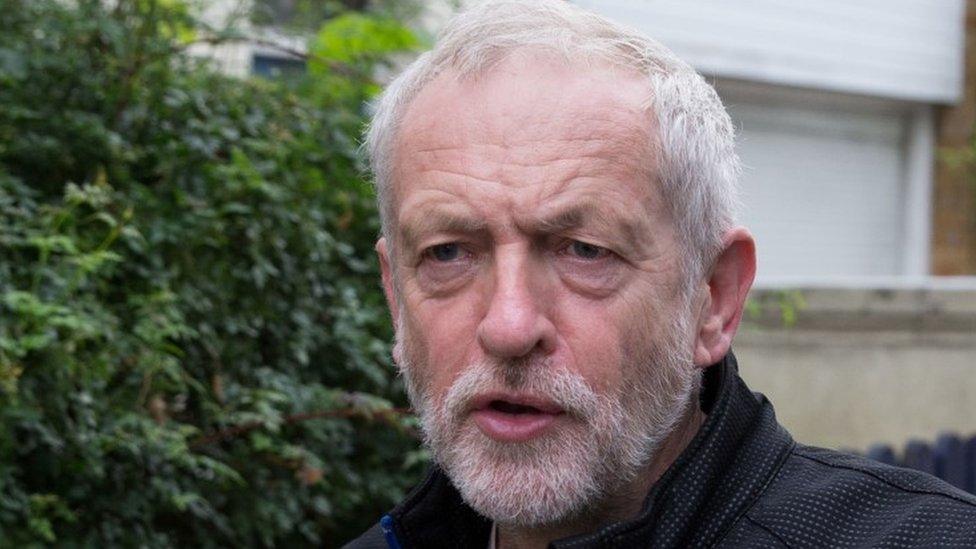Corbyn's Labour 'unelectable and undesirable' - David Miliband
- Published

David Miliband criticised Jeremy Corbyn's approach to foreign and domestic affairs
Labour is "unelectable and undesirable" under Jeremy Corbyn, ex-leadership contender David Miliband has warned.
In a New Statesman article, external, Mr Miliband, who lost to his brother Ed in 2010, said Labour was now a "secondary influence" on national decision making.
The party had not been "further from power since the 1930s", he wrote.
Mr Corbyn, who is being challenged for the leadership by Owen Smith, has pledged to unite the party and "wipe the slate clean" if he remains leader.
Voting in the contest closed on Wednesday, with the result to be announced at a special conference in Liverpool on Saturday.
In the New Statesman article, Mr Miliband, former foreign secretary and South Shields MP, said the Labour Party had gone from "mainstream to the margins".
"The main charge against Jeremy Corbyn is not just that his strategy is undesirable because it makes the party unelectable. That is only half the story.
"The real issue is that his strategy makes the party unelectable because it is in many aspects undesirable."
'Half-hearted message'
Mr Miliband, president of the International Rescue Committee, singled out Mr Corbyn's approach to foreign affairs for particular criticism.
He attacked his "half-hearted message" on Europe during the referendum campaign - which he said was "a betrayal of millions of working people".
Mr Corbyn has insisted he did "all he could" to prevent the UK leaving the EU, but many of his MPs accused him of a "lacklustre" campaign, and he subsequently lost a vote of confidence, which sparked the leadership contest.

It will be announced on Saturday who has won the leadership contest
Mr Miliband also criticised Mr Corbyn's domestic policies, warning that nationalisation "cannot be the answer to everything".
"Anti-austerity speeches cannot explain everything; corporate taxation cannot pay for everything. It doesn't add up. It wouldn't work. People are not stupid."
He said the party should be focusing on new ideas for the future, not debating how to "bring back various lost icons", such as nationalised railways.
Mr Miliband said the left needed to "renew itself" as it has done during "three previous periods in the wilderness" - in the 1930s, 1950s and 1980s/1990s.
"Each time three questions were defining. Only when the left found the right answer to all three did it become a party of government," he wrote.
These were whether the left "puts values above doctrine", has both an international and national perspective, and a plan for wealth creation alongside fair distribution.
'Wipe the slate'
Mr Corbyn, who is the bookies' favourite to win the leadership contest, has said he will be the "same Jeremy Corbyn" if he beats Mr Smith and is re-elected on Saturday.
But he has promised MPs who have disagreed with him that he will "wipe the slate clean" after the divisions of the summer.
Mr Corbyn told the BBC that he had an "awful lot" of calls from Labour MPs who wanted to unite.
Rival Mr Smith, former shadow work and pensions spokesman, has ruled out taking a place in Mr Corbyn's shadow cabinet if he stays on as leader.
"I don't think he can rebuild Labour's reputation in the country, so I won't be serving in Jeremy's cabinet," he told BBC News.
"But I will do what I've always done, which is be Labour, vote Labour, loyally serve this party and make sure from the backbenches I continue to make the arguments I've made during this campaign, in order to get Labour seen once more as credible, get us back on the front foot and get us back into power."
- Published22 September 2016
